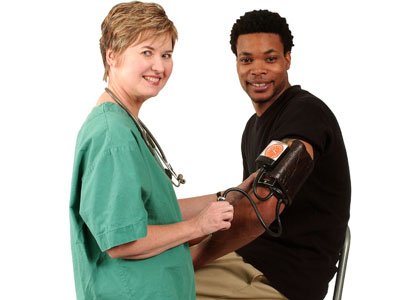BALTIMORE — The American Red Cross has issued an emergency call for blood and platelets, urging all eligible donors to give now to replenish an extremely low summer blood supply.
Blood donations have fallen short of hospital needs for the past few months, resulting in about 39,000 fewer donations than what’s needed, as well as a significant draw down of the overall Red Cross blood supply. In addition, the Independence Day holiday may have caused many regular donors to postpone donations due to vacation plans. A recent Red Cross poll revealed that more than 75 percent of donors surveyed indicated vacation plans this summer, many of them occurring the weeks before and after July 4.
“Right now, blood products are being distributed to hospitals faster than donations are coming in, which is why we are making this emergency request for donations,” said Nick Gehrig, communications director, Red Cross Blood Services. “Donations are urgently needed now to meet the needs of hospital patients in the coming days and weeks. If you’ve thought about giving blood and helping to save lives, now is the time to do it. It’s the blood donations on the shelves that help save lives when an emergency occurs.”
To schedule an appointment to donate, use the free Blood Donor App, visit redcrossblood.org or call 1-800-RED CROSS (1-800-733-2767). The Red Cross is extending hours at many donation sites to allow for more donors to make an appointment to give. Donation appointments and completion of a RapidPass online health history questionnaire are encouraged to avoid longer wait times. Donors with all blood types are needed.
Those unable to give can still help by encouraging others to give through a SleevesUp virtual blood drive at redcrossblood.org/sleevesup, giving of their time through volunteerism or making a financial donation to support Red Cross humanitarian work across the country and around the world.
Every two seconds in the United States blood and platelets are needed to respond to patient emergencies, including accident and burn victims, heart surgery and organ transplant procedures, and patients receiving treatment for leukemia, cancer or sickle cell disease. The Red Cross must collect approximately 14,000 blood and platelet donations every day for patients at about 2,600 hospitals and transfusion centers nationwide.
Because of generous donors, the Red Cross is able to provide blood products to patients like 11-year-old Mae Rainey, who needs regular blood transfusions as part of her treatment for a blood disorder.
“I am very grateful for the opportunities that the Red Cross has given us to get her to her healthiest state,” said Caleb Rainey, Mae’s older brother.
